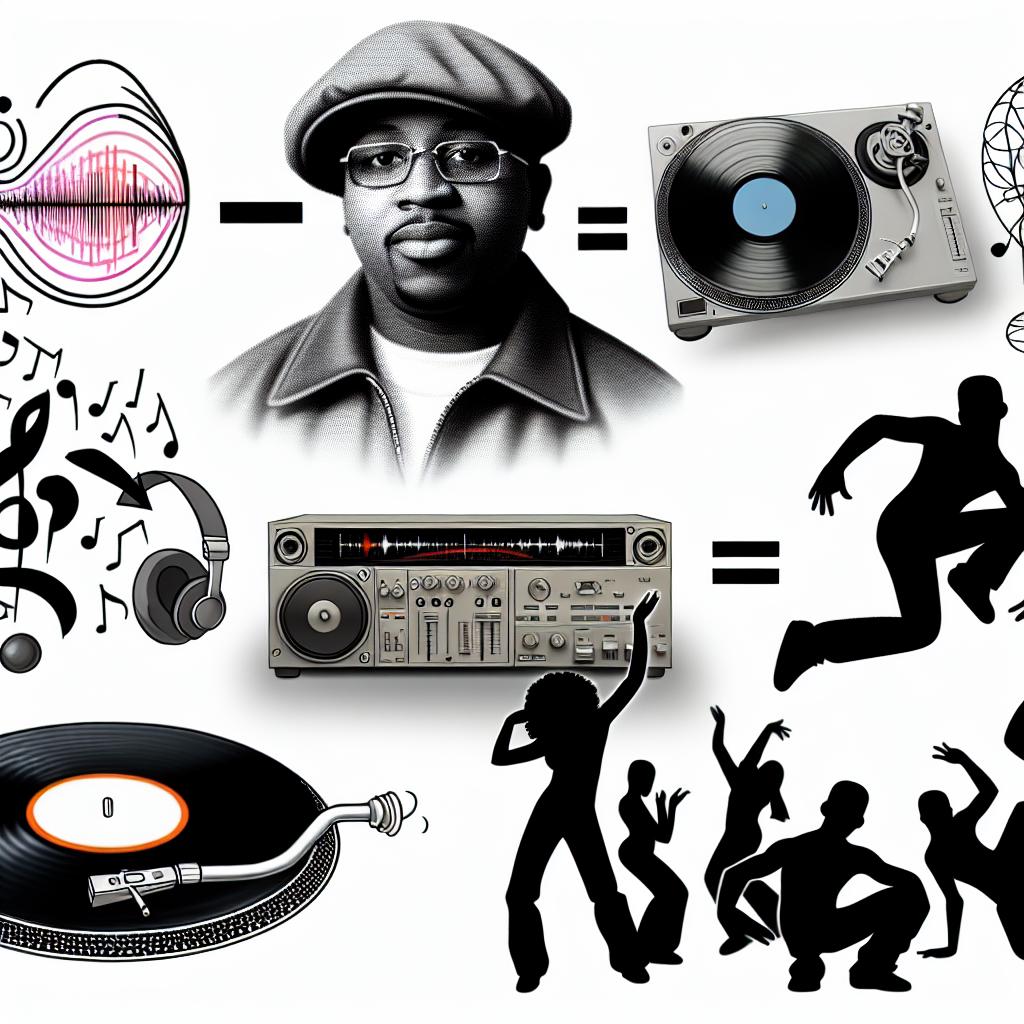The Contribution of DJ Kool Herc to Hip Hop
The origins of hip hop can be traced back to the 1970s in the Bronx, New York City. During this time, a young DJ named Clive Campbell, known by his stage name DJ Kool Herc, played a pivotal role in shaping the genre. His influence remains a foundational element in the history of hip hop.
Understanding DJ Kool Herc’s Techniques
DJ Kool Herc introduced the technique of breakbeat DJing, which became a cornerstone of hip hop music. This method involved isolating and extending a song’s percussion break to allow for a prolonged segment where dancers could showcase their skills. By using two turntables and a mixer, he was able to switch between records, loop the breakbeats, and create a continuous dance rhythm, giving rise to a new musical experience.
This new approach to DJing revolutionized the way music was experienced at parties and events. The extended breaks allowed dancers, later known as breakdancers or b-boys and b-girls, to express themselves more freely. Herc’s innovation provided a platform for a new dance form that became one of the four key elements of hip hop culture.
The Impact on DJ Culture
The innovations of DJ Kool Herc laid the groundwork for future DJs to expand upon. His use of turntables transformed the role of a DJ from simply playing music to creating an interactive and dynamic experience for the audience. Herc’s technique encouraged DJs to become more creative and spontaneous, using their equipment to interact with the music in a live setting.
Through his pioneering work, DJ Kool Herc influenced countless aspiring DJs, cementing a lasting impact on DJ culture. His creative spirit encouraged DJs to develop their unique styles, experiment with sound manipulation, and explore the vast potential of music mixing. As a result, the role of the DJ evolved from a background figure to a central figure in music production and live performances.
Block Parties and Community Influence
In the early days of his career, DJ Kool Herc frequently performed at block parties, which were a staple of community life in the Bronx. These gatherings at Sedgwick Avenue were more than just entertainment; they served as a unifying force for the neighborhood. The inclusive nature of these events contributed to the spread of hip hop culture and fostered a sense of community and shared identity among attendees.
Block parties became a melting pot of cultural exchange, where individuals from various backgrounds could come together and enjoy the new sounds of hip hop. DJ Kool Herc’s music transcended social and cultural barriers, resonating with people from different walks of life. This inclusivity fundamentally shaped the communal and diverse nature of hip hop culture as it is known today.
Legacy and Recognition
DJ Kool Herc’s contributions to the hip hop genre have been widely recognized. Although he did not achieve the commercial fame of some later artists, his pioneering work laid the foundation for other elements of hip hop, including MCing, graffiti art, and b-boying. His legacy is celebrated through various documentaries, music festivals, and scholarly works.
In 2007, DJ Kool Herc’s cultural contributions were further acknowledged when he was honored at the VH1 Hip Hop Honors event. Scholars and enthusiasts continue to research and celebrate his influence on hip hop through numerous books and articles, ensuring that his story and impact are passed on to future generations.
The Rock & Roll Hall of Fame has also acknowledged the significance of hip hop’s origins and recognizes DJ Kool Herc as a key founder of the genre. His story is a testament to the power of innovation and the ability of music to bring people together, transcending boundaries and creating lasting cultural movements.
In conclusion, DJ Kool Herc’s influence on the hip hop genre is undeniable. Through his innovative techniques and community-driven performances, he helped to establish a cultural movement that continues to impact music and society today. His legacy persists in the sound of hip hop tracks, the creativity of DJs and the global embrace of hip hop culture. For more on hip hop’s origins and development, visit official resources such as the Rock & Roll Hall of Fame.


